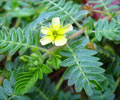Women who put off having children until later in life risk passing on an infertility risk to their daughters, researchers warned yesterday.
Women who put off having children until later in life risk passing on an infertility risk to their daughters, researchers warned yesterday. This discovery is the first evidence that the reduced fertility seen in older women causes genetic damage which is passed on at the time that they conceive, to their female children, causing reduced fertility in them.
According to doctors behind the study while it was still too early to predict the impact of the effect, they suggested that the trend for couples to put off starting families until their mid-30s and beyond will gradually cause many young women to seek for fertility treatment simply because they were born to older mothers. Details of the research were announced at the American Society of Reproductive Medicine in New Orleans yesterday.Lead researcher, Peter Nagy, of Reproductive Biology Associates in Atlanta, selected 74 women attending the fertility clinic and asked them about their parents' ages when they were born and the ages at which their mothers reached the menopause. Following this the women were divided into two groups, one group of those who had successful pregnancies, and the other of those who failed to become pregnant.
The study revealed that women who became pregnant had on average comparatively younger parents, with fathers aged 28.2 and mothers aged 25.7, while women who failed to get pregnant were found to have parents whose average ages were 31.9 and 28.2.
On further examination of the figures the researchers found that women who failed to conceive were born to mothers who were on average five years closer to the menopause. They were born when their mothers were an average of 19.6 years away from the menopause, compared with 24.7 years for women who did get pregnant. The age of the women's fathers had no significant effect.
The age of menopause is typically around 50. The researcher’s studies revealed that the nearer a woman is to menopause when she gives birth, the higher the chance her daughter will have impaired fertility.
Dr Nagy said, "A mother's reproductive age is important not only for herself, but it will determine to a certain extent the chances of her daughter or daughters being infertile. When we are treating patients close to the age of 40, we are helping them get babies but, at the same time, these children will have a higher risk of becoming infertility patients."
Advertisement
Dr Nagy said, "In previous generations, parents were pretty young, but society is changing and a lot of women are delaying birth, so what we will see in 20 to 30 years' time will be very different. We might see a lot more infertility problems in the future."
Advertisement
Bill Ledger, professor of reproductive medicine at Sheffield University, said: "This is fascinating. We know the best quality eggs are ovulated early in life, so there's been a lot of anxiety in the community about women waiting until they are close to menopause before ovulating the egg that becomes their son or daughter. What does that do to the child? They're saying that poor egg quality in mum links to poor egg quality in the daughter. The problem has been that until this generation, there haven't been enough children born to older mothers to study."
Another study reported at the meeting showed an increased risk of diabetes and heart disease in women who take the contraceptive pill for long periods in later life.
Source-Medindia
NLA











